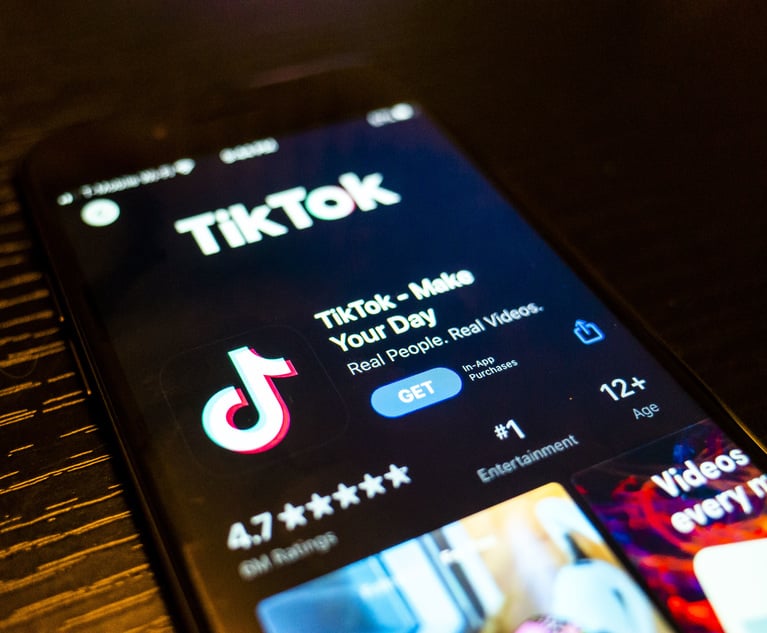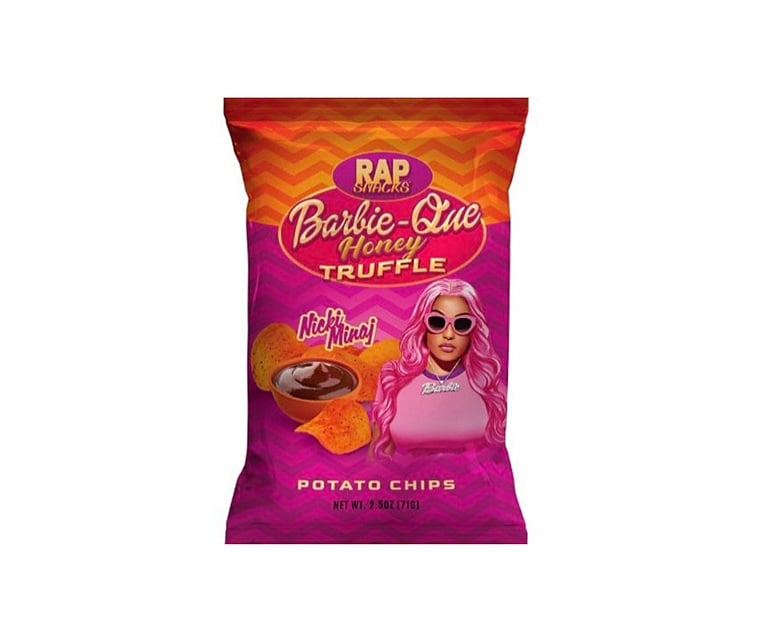 Atlanta attorney Joe Gleason (left) and Montana attorney Jeff Oven. (Courtesy photos)
Atlanta attorney Joe Gleason (left) and Montana attorney Jeff Oven. (Courtesy photos)DeKalb Jury Awards $135M to Company in Electronic Payment Suit
A DeKalb County jury determined that Atlanta-based Global Payments Inc., one of the world's largest electronic payment processors, breached its contract with a firm that recruited merchants to use Global services after both companies were named as defendants in a CFPB lawsuit.
September 24, 2019 at 06:17 PM
5 minute read
A DeKalb County jury has awarded a Montana firm $135 million in a breach-of-contract battle with one of the world's largest electronic payments processors.
The jury issued the verdict in favor of Frontline Processing Corp. on Monday after a weeklong trial, said Atlanta attorney Joe Gleason. It also rejected Global Payments' counterclaim, he said.
Gleason was co-counsel with Jeffery Oven of Crowley Fleck Law in Bozeman, Montana.
The jury awarded $24.3 million in direct damages for losses Frontline sustained after Global Payments stopped paying the Montana company monthly fees from merchants it recruited to do business with Global and $109.8 million in consequential damages resulting from the overall harm to Frontline's bottom line, Gleason said.
"The company was profitable and growing," the lawyer explained. "Now it's just treading water."
The jury also awarded $1.07 million in legal fees to pay for the DeKalb litigation and defending itself in a separate, related federal lawsuit, he said.
The jury simultaneously rejected Global Payments' counterclaims against Frontline, according to the jury verdict form.
DeKalb County Superior Court Judge Linda Hunter presided over the case.
Steven Rosenwasser, a partner at Atlanta's Bondurant, Mixson & Elmore who defended Atlanta-based Global Payments Inc., declined comment, referring The Daily Report to Global Payments.
Calling the case "completely without merit," a company spokeswoman said that Global Payments intends to appeal immediately.
"The outcome is inconsistent with the facts and well settled law, and we fully expect to prevail on appeal," said Kim Mann, Global Payments' vice president of corporate relations. "We will not stop until this gross miscarriage of justice is reversed."
Gleason said Frontline's case against Global Payments stems from a U.S. Consumer Financial Protection Bureau complaint filed in 2015 against multiple companies affiliated with the electronic payment industry, including Frontline and Global.
The CFPB lawsuit alleged that debt collectors and debt payment processors had allied to use robocalls to threaten and harass consumers into collectively paying millions of dollars in debts they did not owe. The suit alleged that debt collectors would not have been successful without the participation of telemarketing companies and payment processors.
Gleason—who also represented Frontline in the federal case—said the suit was the first time the federal government attempted to hold electronic payment processors liable for the wrongdoings of people who were swiping credit cards, including debt collectors who signed up for Global Payments' electronic payment processing services.
Both Frontline and Global Payments were dismissed from the suit in 2017 after U.S. District Senior Judge Richard Story sanctioned the CFPB for "willfully" violating the judge's repeated instructions to identify a factual basis for some of its claims and failing to make a knowledgeable witness available to speak on the agency's behalf.
But Gleason said that Global Payments "threw Frontline under the bus" in an effort to avoid blame and then used the CFPB complaint as "a convenient excuse" to withhold all of Frontline's residual fees, end what he said was a 13-year successful contractual relationship, "and, in the process, take over all of Frontline's merchants," he said.
Frontline acted as an independent sales contractor for Global Payments, soliciting merchants to use Global Payments' electronic payment services, Gleason said. The arrangement allowed Frontline to collect fees as high as $500,000 a month from Global Payments for hundreds of merchants who processed more than $20 million a month through Global Payments' electronic systems, the lawyer explained.
Global Payments' action stripped Frontline of its primary source of revenue. "Before all this happened, Frontline was a successful, growing company on a great trajectory in a solid industry that has boomed," Gleason explained.
Gleason said the dispute between Global Payments and Frontline centered on two debt collectors that Frontline recruited that had previously been approved by Global Payments through another contract sales company. Global Payments approved the debt collectors as customers a second time after Frontline submitted them as clients, he said. Global Payments never informed Frontline that, by then, Visa had notified Global Payments that it would not do business with debt collectors, Gleason said. Moreover, a Global senior vice president reassured Frontline's CEO that the debt collectors posed no problem, Gleason said.
But after the federal suit targeting the debt collectors' practices was filed, Global Payments publicly blamed Frontline for recruiting them, Gleason said. "It's not fair to publicly say Frontline snuck these guys in the back door when they shouldn't have when, in reality, that's not what happened, Gleason said.
This content has been archived. It is available through our partners, LexisNexis® and Bloomberg Law.
To view this content, please continue to their sites.
Not a Lexis Subscriber?
Subscribe Now
Not a Bloomberg Law Subscriber?
Subscribe Now
NOT FOR REPRINT
© 2025 ALM Global, LLC, All Rights Reserved. Request academic re-use from www.copyright.com. All other uses, submit a request to [email protected]. For more information visit Asset & Logo Licensing.
You Might Like
View All
'Cradle to Grave': Children's Clothing Company Carter's Sued in Digital Privacy Class Action

Atlanta Capital Recruiter Awarded $10M for Unpaid Commissions by Blockchain Company


Nicki Minaj 'Barbie-Que' Chips Are Giving Mattel IP Nightmares
Trending Stories
- 1Restoring Trust in the Courts Starts in New York
- 2'Pull Back the Curtain': Ex-NFL Players Seek Discovery in Lawsuit Over League's Disability Plan
- 3Tensions Run High at Final Hearing Before Manhattan Congestion Pricing Takes Effect
- 4Improper Removal to Fed. Court Leads to $100K Bill for Blue Cross Blue Shield
- 5Michael Halpern, Beloved Key West Attorney, Dies at 72
Who Got The Work
Michael G. Bongiorno, Andrew Scott Dulberg and Elizabeth E. Driscoll from Wilmer Cutler Pickering Hale and Dorr have stepped in to represent Symbotic Inc., an A.I.-enabled technology platform that focuses on increasing supply chain efficiency, and other defendants in a pending shareholder derivative lawsuit. The case, filed Oct. 2 in Massachusetts District Court by the Brown Law Firm on behalf of Stephen Austen, accuses certain officers and directors of misleading investors in regard to Symbotic's potential for margin growth by failing to disclose that the company was not equipped to timely deploy its systems or manage expenses through project delays. The case, assigned to U.S. District Judge Nathaniel M. Gorton, is 1:24-cv-12522, Austen v. Cohen et al.
Who Got The Work
Edmund Polubinski and Marie Killmond of Davis Polk & Wardwell have entered appearances for data platform software development company MongoDB and other defendants in a pending shareholder derivative lawsuit. The action, filed Oct. 7 in New York Southern District Court by the Brown Law Firm, accuses the company's directors and/or officers of falsely expressing confidence in the company’s restructuring of its sales incentive plan and downplaying the severity of decreases in its upfront commitments. The case is 1:24-cv-07594, Roy v. Ittycheria et al.
Who Got The Work
Amy O. Bruchs and Kurt F. Ellison of Michael Best & Friedrich have entered appearances for Epic Systems Corp. in a pending employment discrimination lawsuit. The suit was filed Sept. 7 in Wisconsin Western District Court by Levine Eisberner LLC and Siri & Glimstad on behalf of a project manager who claims that he was wrongfully terminated after applying for a religious exemption to the defendant's COVID-19 vaccine mandate. The case, assigned to U.S. Magistrate Judge Anita Marie Boor, is 3:24-cv-00630, Secker, Nathan v. Epic Systems Corporation.
Who Got The Work
David X. Sullivan, Thomas J. Finn and Gregory A. Hall from McCarter & English have entered appearances for Sunrun Installation Services in a pending civil rights lawsuit. The complaint was filed Sept. 4 in Connecticut District Court by attorney Robert M. Berke on behalf of former employee George Edward Steins, who was arrested and charged with employing an unregistered home improvement salesperson. The complaint alleges that had Sunrun informed the Connecticut Department of Consumer Protection that the plaintiff's employment had ended in 2017 and that he no longer held Sunrun's home improvement contractor license, he would not have been hit with charges, which were dismissed in May 2024. The case, assigned to U.S. District Judge Jeffrey A. Meyer, is 3:24-cv-01423, Steins v. Sunrun, Inc. et al.
Who Got The Work
Greenberg Traurig shareholder Joshua L. Raskin has entered an appearance for boohoo.com UK Ltd. in a pending patent infringement lawsuit. The suit, filed Sept. 3 in Texas Eastern District Court by Rozier Hardt McDonough on behalf of Alto Dynamics, asserts five patents related to an online shopping platform. The case, assigned to U.S. District Judge Rodney Gilstrap, is 2:24-cv-00719, Alto Dynamics, LLC v. boohoo.com UK Limited.
Featured Firms
Law Offices of Gary Martin Hays & Associates, P.C.
(470) 294-1674
Law Offices of Mark E. Salomone
(857) 444-6468
Smith & Hassler
(713) 739-1250






